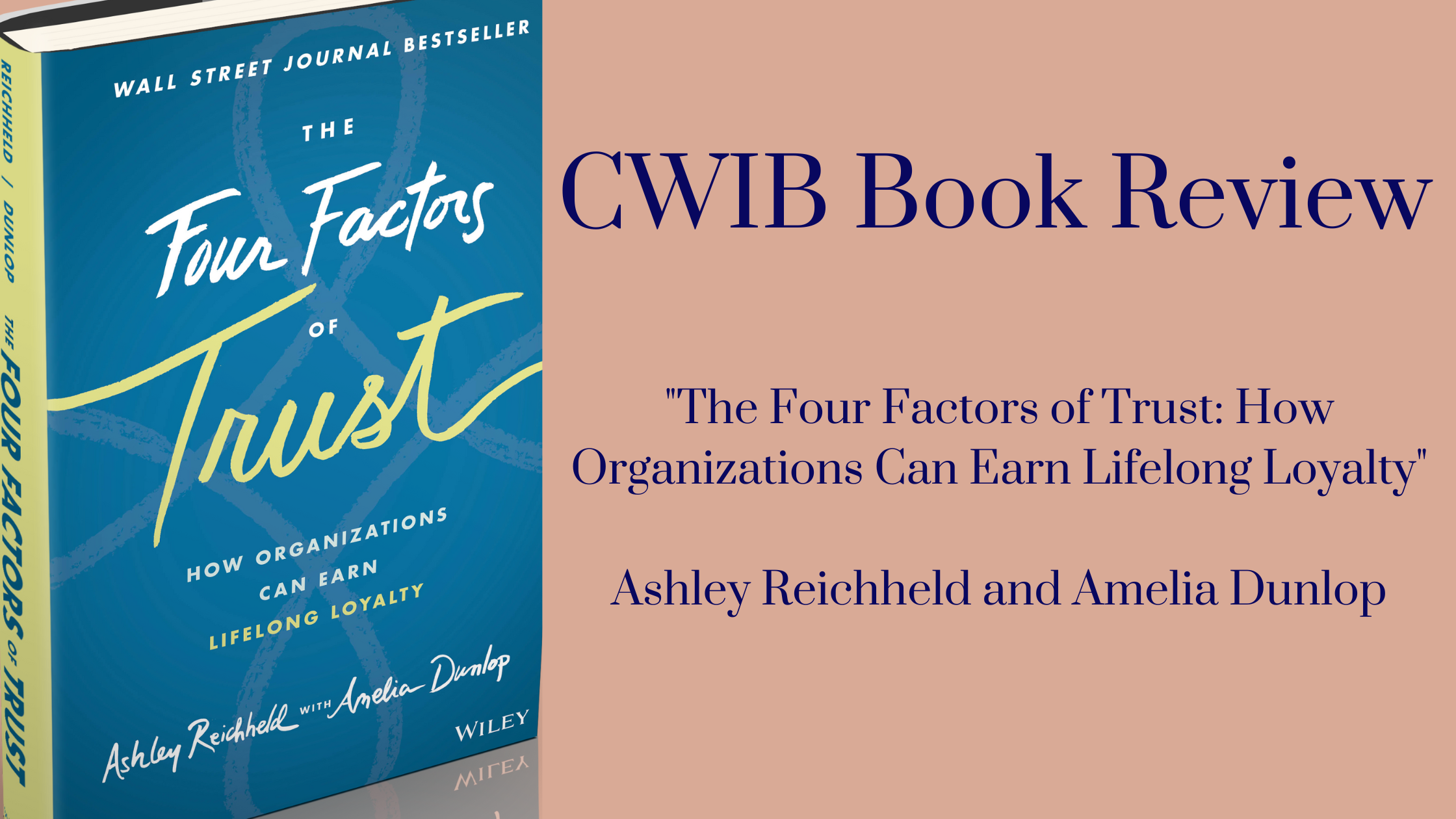CWIB Book Review: “The Four Factors of Trust”
“This is my commandment: love one another as I love you” (John 15:12).
How many people do you trust? Hopefully, there’s at least a few people in your life whom you trust absolutely. What about organizations? Do you trust your employer? Your colleagues? What about the companies you purchase products or services from?
You might be losing trust with each group I ask you about—which is, unfortunately, typical. According to public relations firm Edelman’s annual trust barometer, “The world is failing to meet the unprecedented challenges of our time because it is ensnared in a vicious cycle of distrust.”
It’s this cycle that Ashley Reichheld and Amelia Dunlop hope to break with their new book, “The Four Factors of Trust: How Organizations Can Earn Lifelong Loyalty.” Aimed at business leaders in a variety of functions, it explores their model of organizational trust and provides some tips for different areas of the business to implement practices that improve trust with customers and employees.
I began this book with a question: If someone is attempting to make you trust them (say, with a four-factor model), doesn’t that make them inherently untrustworthy?
The answer is probably “no” when you’re talking about individual relationships. But, for an organization, made up of so many moving parts and people, the answer might be “yes.” Reichheld and Dunlop’s book is a great introduction to why—and can serve to gain buy-in and provide a methodology for leaders trying to make their organizations better at serving human beings.
Breaking Down Trust
Reichheld and Dunlop’s model, which they call HX TrustIDTM, breaks down trust into four elements (the four factors): humanity, capability, transparency, and reliability. The first part of the book goes into how they developed this model, what each factor means, and how it contributes to trust.
Reichheld and Dunlop both work at Deloitte. Reichheld is a principal and the customer and marketing practice leader for the consumer industry, and Dunlop is the chief experience officer. (Dunlop also identifies herself in the book as a Catholic.) The model is a tool offered by Deloitte, so the book is undoubtedly a marketing tool for their employer’s consulting services. However, practicing what they preach, Reiccheld and Dunlop are transparent in how they developed the tool, and the book offers value on its own.
A Cross-functional Priority
Part 2 of the book got into the nitty-gritty of creating a trusted brand and workplace. Chapters are aimed at executive leaders, marketing and customer and employee experience professionals, talent professionals, and operations and technology professionals (including an entire chapter dedicated to cybersecurity).
You can skip to the chapters that apply to your role or read the whole thing to understand the big picture. I would encourage everyone to read the chapter on cybersecurity, however. As the authors note, the biggest cyber-risk in any organization is its people. It’s also important as a consumer to understand the risks involved in any technology you use and to weigh those risks against the benefits you receive from the software or platform in question. (Can you tell I’m married to a software engineer?)
I believe that being a trustworthy person comes down to being a good person. As we strive for holiness, trustworthiness should naturally follow. However, for a company to be trustworthy, it might take a little more work. “The Four Factors of Trust” is an excellent starting place for any professional—particularly one in a leadership role—to start.
Taryn DeLong is a Catholic wife and mother in North Carolina who encourages women to live out their feminine genius as co-president and editor-in-chief of Catholic Women in Business and a contributor to publications for Catholic women. She enjoys curling up with a cup of Earl Grey and a good novel, playing the piano, and taking walks in the sunshine with her family. Connect with Taryn: Twitter • Instagram • Facebook • LinkedIn • Blog


